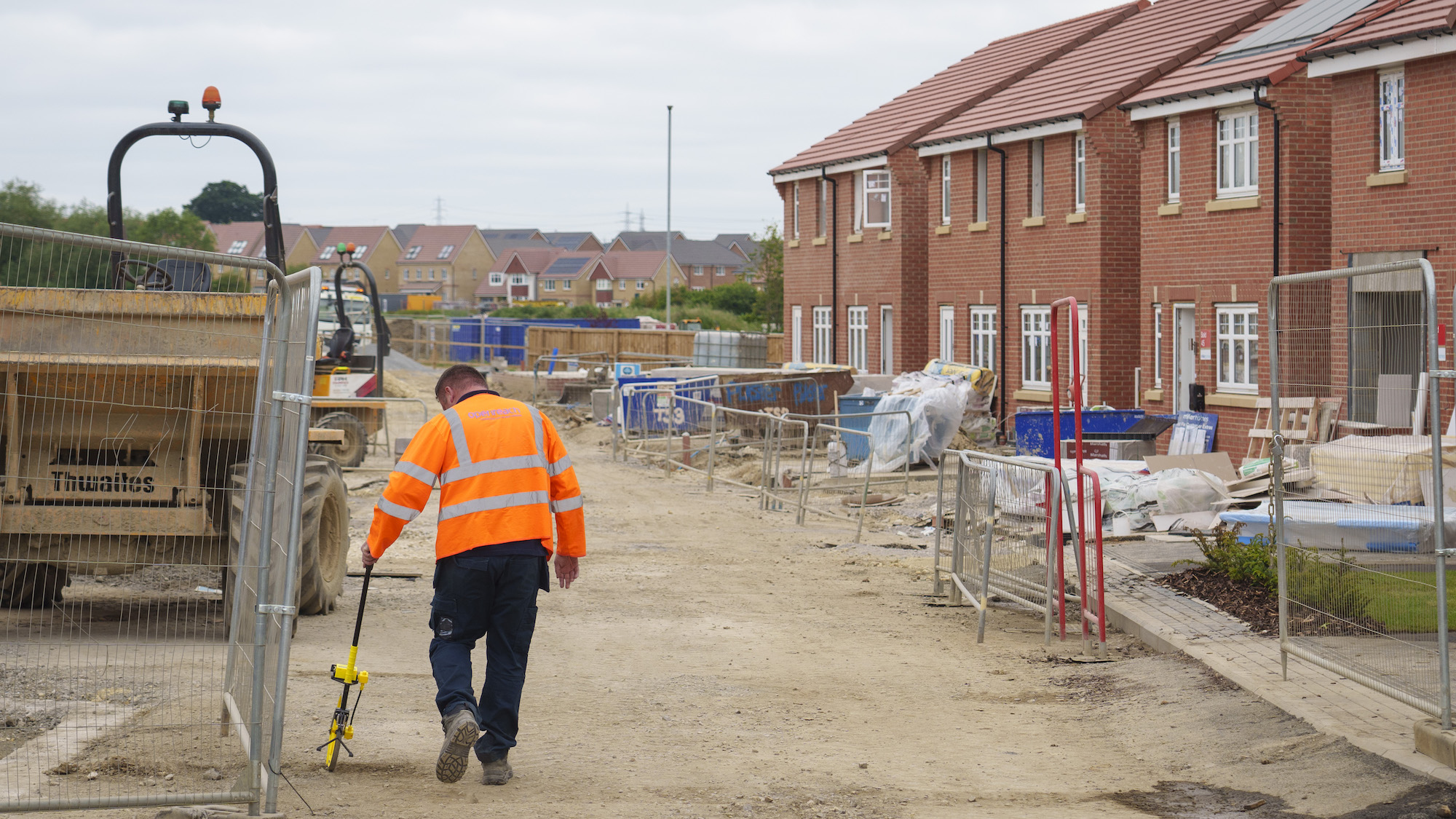Five solutions to the UK's housing crisis
Levelling Up Secretary Michael Gove said the situation in Britain is 'worse' than most people think

A free daily email with the biggest news stories of the day – and the best features from TheWeek.com
You are now subscribed
Your newsletter sign-up was successful
Successive UK governments "have not built enough homes overall for generations" and the resulting housing crisis is "worse" than most people believe, Levelling Up Secretary Michael Gove has said.
Responding to questions about the UK's record-high net migration levels, Gove added that increased migration had put "more pressure on housing". But he insisted the Tory government would "hit its target of a million new homes in this parliament", The Independent reported.
The UK's housing shortage is a long-standing problem, with "no coherent housing strategy" in place since 1997, wrote Stuart Baillie for The Times, and an "affordability crisis" has stemmed from the lack of new homes being built.
The Week
Escape your echo chamber. Get the facts behind the news, plus analysis from multiple perspectives.

Sign up for The Week's Free Newsletters
From our morning news briefing to a weekly Good News Newsletter, get the best of The Week delivered directly to your inbox.
From our morning news briefing to a weekly Good News Newsletter, get the best of The Week delivered directly to your inbox.
The crisis will be a "key issue in the run-up to the next general election", Baillie added, but when housing becomes a "political issue", it "inevitably leads to short-term solutions".
Here are five possible solutions to Britain's housing crisis.
Build more homes
To simply build more homes is "easier said than done", as "successive governments will attest", wrote Gavin Haines at Positive News.
But an "extensive range of barriers" stand in front of potential new-builds, said estate agents Knight Frank, from "environmental factors to affordability".
A free daily email with the biggest news stories of the day – and the best features from TheWeek.com
Beginning with "more funding to planning departments hollowed out by years of cuts" would be a "good place to start", said Haines. Planning and development is the "biggest obstacle to building new homes", added Knight Frank, and finding ways to "overcome planning barriers" would speed up the process of building new homes.
Likewise, being able to obtain usable land, including in the green belt, would make building simpler. The protected green belt has "more than doubled in size in the last 40 years", and now needs to be "part of the conversation when it comes to house building", said Alex Preston in The Telegraph.
Simplify the buying and selling process
Much of Britain has an "outmoded property buying regime" that requires a "continental-style overhaul", wrote Eir Nolsøe for The Telegraph. It now "typically takes more than four months" for prospective owners to complete the purchase of a property, which is "nearly twice as long as 10 years ago".
Creating a simpler approach to buying and selling a house would stop the "inefficient use of resources" that the process currently involves, and ultimately let people "easily follow opportunities" and get on the housing ladder.
Clamp down on second homes
The level of second-home ownership is a "growing problem", said Haines at Positive News, and there is an "Airbnb effect" happening in the UK. Landlords are now choosing to "shun long-term leases for more lucrative, short-term holiday lets".
Second homes "eat into housing supply", pushing up prices, said The Big Issue, and "unoccupied homes can turn towns and villages into ghost towns" in seasonally popular areas. The government has attempted to hand "the ability to control the number of second homes and holiday lets" to local authorities, with some areas putting tax levies on second homes and regulating Airbnb properties.
Incentivise downsizing
Getting older people to downsize could be "part of the solution" to ease Britain's housing crisis, said Camilla Cavendish in the Financial Times. There would be a greater impact by "shuffling the pack of housing stock" instead of building new houses, which "barely make a dent on the total", she added.
There are plenty of personal benefits to downsizing, including cheaper utility bills and the potential to release equity, but barriers including the "complexity of the transaction" and "paying stamp duty on the new purchase" often put people off.
A solution might be to put the elderly "'last-time' buyers" on an "equal footing with first-time buyers", which could "liberate larger homes", argued Cavendish, who added that "downsizing could be a win-win for all generations".
Co-housing
With such a dearth of affordable housing, co-living could provide people with "autonomy, a built-in community, and a stable place in the world", said Ellie Sivins in The Big Issue. The idea would see residents living "separately in their own homes" without giving up "any financial or domestic privacy", but they would receive "stability and support", including things like "childcare, chores, shared items, resources or DIY skills", from their fellow residents.
The idea is already happening in some places in the UK as well as across Europe, where people have their own living quarters but often share areas such as "communal kitchens, laundry rooms, playrooms, and even co-working spaces".
Co-living is just "one solution" to the housing crisis, says Sivins, but provides a solution away from a "one-size-fits-all approach to housing".
Richard Windsor is a freelance writer for The Week Digital. He began his journalism career writing about politics and sport while studying at the University of Southampton. He then worked across various football publications before specialising in cycling for almost nine years, covering major races including the Tour de France and interviewing some of the sport’s top riders. He led Cycling Weekly’s digital platforms as editor for seven of those years, helping to transform the publication into the UK’s largest cycling website. He now works as a freelance writer, editor and consultant.